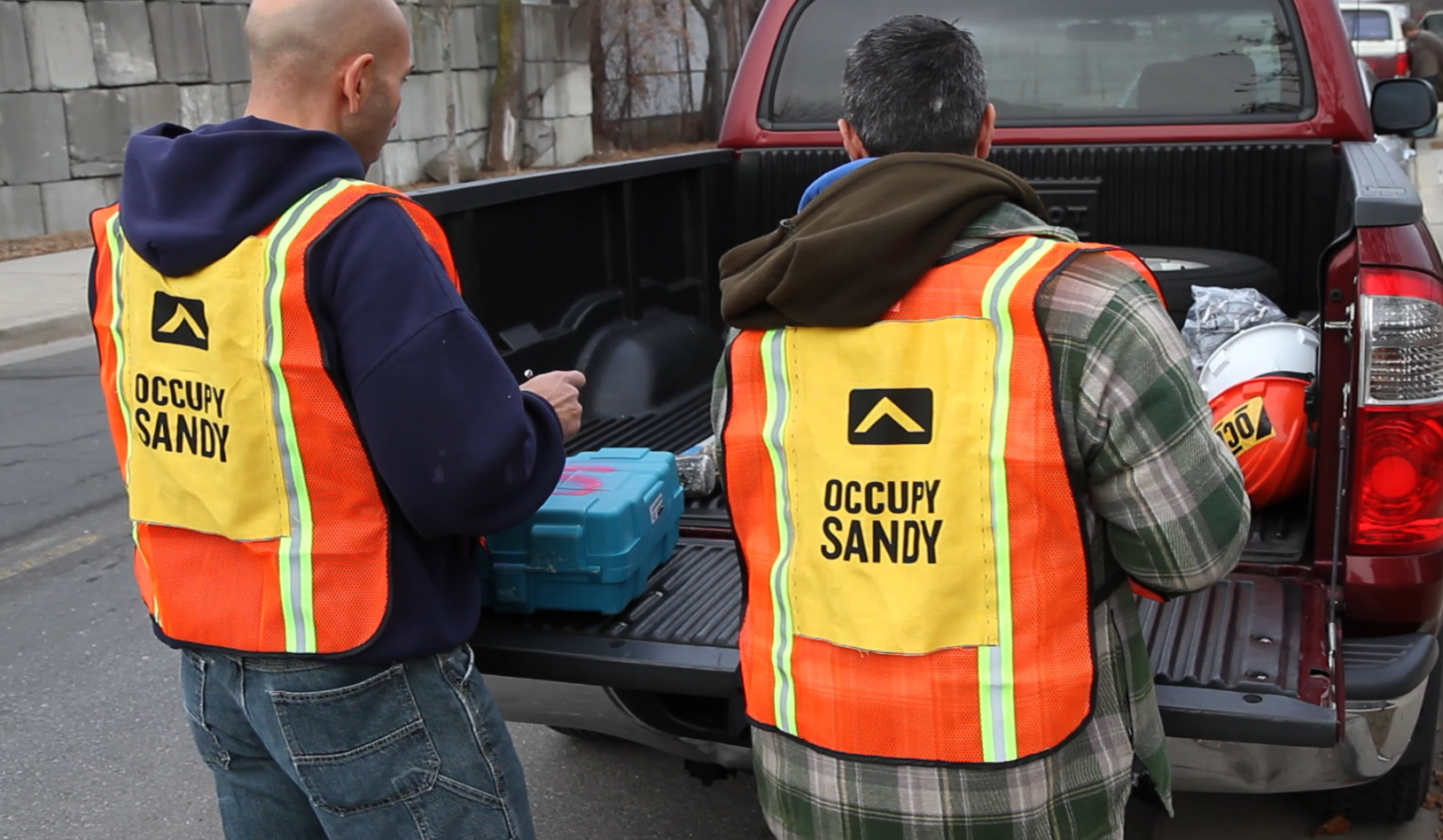“Gonzo Notes” is Kit’s newsletter of political analysis and direct action tips.
Resilient communities are more resistant.
Strong communities survive and strong communities resist.
In the aftermath of Hurricane Katrina, radical activists and community organizers created Common Ground Relief to step in where the government and traditional NGOs like the Red Cross failed. They organized both the immediate needs of the community, like food and rebuilding, while also enabling long term political organizing. Today, the Common Ground Health Clinic still remains in New Orleans, offering “solidarity not charity.”
Occupy Sandy was a more recent, well known response to disaster. With their skills honed by Occupy Wall Street, activists created an ambitious network of neighborhood relief centers offering supplies of all kinds and connecting people with builders and other volunteers after Hurricane Sandy.
I was a key organizer a similar, smaller effort, Austin Common Ground Relief, which responded to a deadly flood by helping people in one of the poorest areas not just to eat and rebuild, but to create a neighborhood association capable of advocating for their own needs.
Under Donald Trump, we face a new state of emergency, or something like a continuous, rolling series of disasters. With his plans to gut the EPA and invest heavily in the most toxic forms of fossil fuels, we can expect new and more severe natural disasters.
Simultaneously, Hurricane Donald threatens our schools, our health care and so many of our civil liberties, not to mention our very continued existence as he sits atop the world’s largest military.
These are terrifying times, and the idea of responding to so many disasters at once feels impossible. To me, the only hope lies in hyper-local organizing, and then building coalitions from there.
Let’s organize not only our neighborhoods, but also within digital cultures and subcultures and across extended social networks that link us by interest, desire, orientation or outlook across geographic distance.
The idea of creating radical replacements for everything, from abortion clinics to schools, is daunting, to say the least. However, if we each put in the work, in our own way, with each of our skills, I believe we can build new networks of survival and create resilient communities.
When sociologist Erik Klinenberg studied the deadly 1995 Chicago heat wave, he found that well-connected neighborhoods, where people knew each other, checked on each other, and were better ready to respond to each others’ needs, were more resilient.
It’s my contention that well-connected communities will also be more resilient against this growing fascist emergency. That means both our physical neighborhoods, but also the other, less tangible networks, like our social media buddies or the comrades and family of the heart we cultivate around us.
This isn’t work we do instead of taking the streets, or other forms of direct action. This is what we do in between marches and strikes. The work of local and community organizing will also support us during bigger moments of protest and rupture, when we’ll have newly strengthened networks to support revolutionary change.
From these connections comes the potential for real long-term movement building, and even hope for a better future.
Thousands of people came with food, with supplies, and electricians came and plumbers came and people who could haul things came and people who could rebuild things came, and this neighborhood suddenly had this resilience center that was the foundation for all kinds of spontaneous social organizing — because it had a surf club where the owners knew their neighbors well. — ERIK KLINENBERG, QUOTED IN “HOW TO PROTECT COMMUNITIES FROM CLIMATE CHANGE“
Gonzo action tips
I want you to find or create a community action team from within your neighborhood, or from another pre-exsting network.
To form the team, you might advertise locally through the Nextdoor app, on a local Facebook group, or create a new group from your existing neighborhood association or just by talking to neighbors and posting fliers at your local cafe.
Look at the other communities you already take part in, too. Can you radicalize your board gaming nights? Invite your queer best friends over for a monthly radical book club and direct action planning team? Maybe your knitting circle is ready to take action against the Rapist In Chief.
Along the way, you may find there’s already someone doing this work in your circles, and you can combine your efforts or work in concert, depending on each of your abilities and needs.
I recommend taking your efforts off of Facebook (or Nextdoor), even if they start there. Stick to private mailing lists, Signal, and in person organizing. Know who you’re working with, and build genuine social networks based on trust.
I’m keeping this a bit vague, because only you can identify the bullshit around you and the people best equipped to respond to it. These groups and their actions will seem small, but together we can topple giants.
 How To Survive Hurricane Donald (Gonzo Notes 05) by Kit O’Connell is licensed under a Creative Commons Attribution 4.0 International License.
How To Survive Hurricane Donald (Gonzo Notes 05) by Kit O’Connell is licensed under a Creative Commons Attribution 4.0 International License.
Based on a work at https://kitoconnell.com/2017/02/10/survive-hurricane-donald-gonzo-notes-05.
